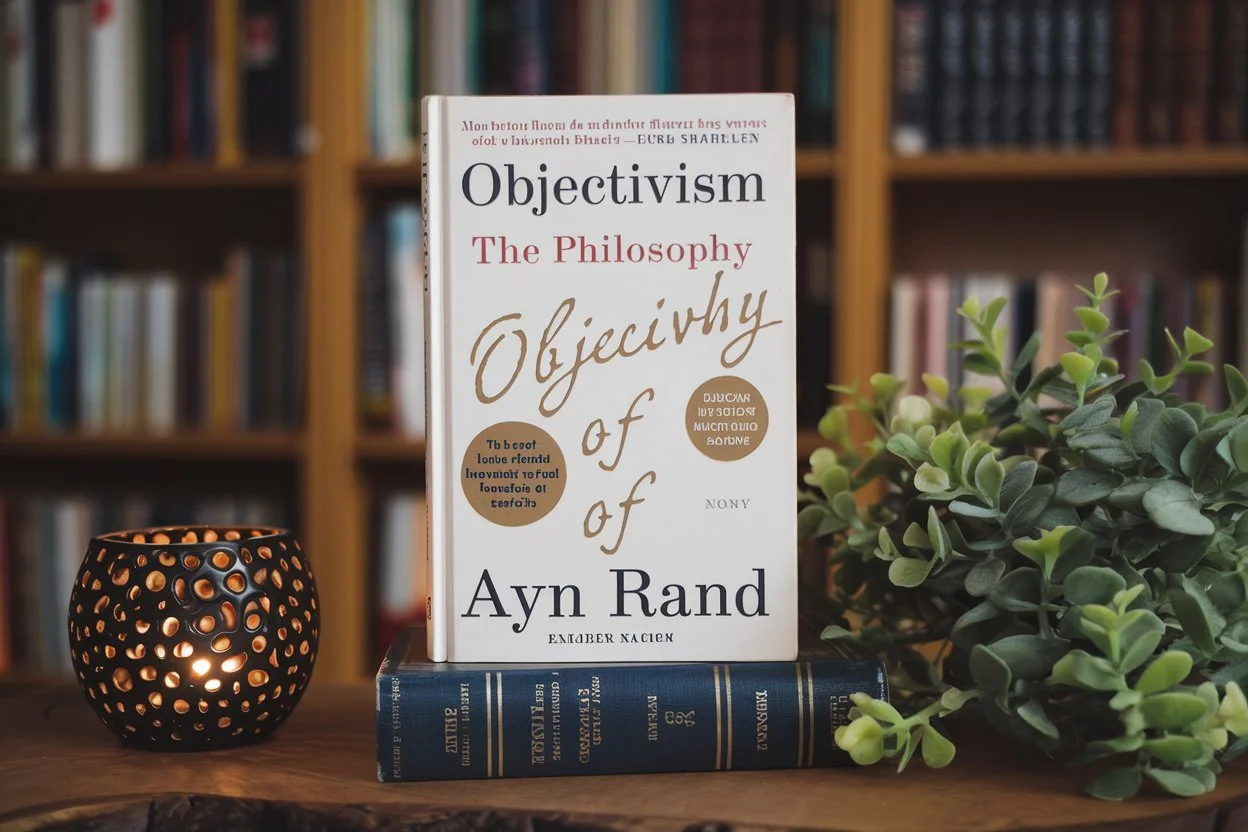Understanding Objectivism: Ayn Rand's Philosophy of Reason and Individualism
Objectivism is a philosophical system developed by Ayn Rand, which emphasizes the importance of reason, individualism, and capitalism. It is based on the idea that reality exists independent of consciousness, and that individuals can understand the world through reason and rational thought. Here are the key principles of Objectivism:
1. Metaphysics: Objective Reality
Objectivism asserts that reality exists independently of perception or consciousness. This means that the world is not shaped by personal beliefs, wishes, or emotions, but instead follows objective laws and principles. What exists is what is real, regardless of what anyone believes or desires.
2. Epistemology: Reason
According to Objectivism, reason is the only means of gaining knowledge. The human mind can understand the world by observing it, forming concepts, and applying logic. Objectivists reject faith, mysticism, and any form of knowledge that contradicts reason. Rational thought and objective evidence are the tools for understanding reality and making decisions.
3. Ethics: Rational Self-Interest (Egoism)
The core of Objectivist ethics is that individuals should act in their own rational self-interest. This principle is known as rational egoism. According to Rand, the pursuit of one’s own happiness is the highest moral purpose. To achieve this, one must make choices based on logic, reason, and a long-term view of self-interest, which includes maintaining personal integrity and respecting the rights of others.
Objectivism rejects altruism, the idea that individuals should sacrifice their own well-being for the sake of others. In Rand’s view, altruism is morally wrong because it demands that individuals act against their own self-interest for the benefit of others, undermining their own values and happiness.
4. Politics: Laissez-Faire Capitalism
Objectivism advocates for a political system based on individual rights and freedom, which can only be fully realized in a system of capitalism. In this ideal system, the government’s role is limited to protecting individual rights—primarily through the military, police, and courts. The government should not interfere with the economy, business, or individuals' lives.
In an Objectivist society, trade and business are voluntary and based on mutual benefit. People should be free to pursue their own economic interests without interference, as long as they respect the rights of others. Rand’s vision of capitalism is one where competition thrives, innovation is celebrated, and individuals are free to create and produce without government control or regulation.
5. Aesthetics: The Role of Art
Rand believed that art plays a crucial role in reflecting and shaping human values. In her view, art should project a heroic vision of life, where individuals are portrayed as rational, purposeful, and capable of achieving greatness. This is why her personal philosophy is often tied to her artistic creations, especially in her novels like The Fountainhead and Atlas Shrugged. The heroes in her novels embody the values of individualism, independence, and rational thought.
6. The Virtues
Rand identified a set of virtues that are essential for living a successful and meaningful life according to Objectivism:
Rationality: The commitment to perceiving reality as it is, and acting based on reason and logic.
Productiveness: The dedication to creating values through work, making a contribution to the world in a way that aligns with one’s own interests and talents.
Pride: The commitment to self-esteem and maintaining one’s integrity, taking responsibility for one's life and actions.
Independence: The ability to think and act independently, without being swayed by others’ opinions, traditions, or the collective pressure of society.
Honesty: The refusal to lie or distort reality. Honesty is seen as a prerequisite for rationality and integrity.
Justice: The principle of recognizing and rewarding those who act in accordance with reason, while rejecting those who act destructively or irrationally.
Integrity: Consistency between one’s values, actions, and words. Living in accordance with one’s rational principles.
Productiveness: The pursuit of creating value in the world through one’s abilities, effort, and creativity.
Objectivism in Practice
In practice, Objectivism leads to a worldview where individuals are encouraged to pursue their own happiness, make choices based on their rational self-interest, and act as independent agents in all areas of life. It rejects the idea that individuals should sacrifice themselves for others or for any collective cause, and instead celebrates the human capacity for greatness and achievement.
Objectivism’s Influence: Rand’s philosophy has had a profound influence on libertarianism, conservative thought, and certain strands of the free-market movement. Prominent advocates of Objectivism and Rand’s works include economists, business leaders, and political figures who promote individual rights, capitalism, and limited government intervention. Though controversial, Rand’s ideas have been debated, critiqued, and admired in various political and intellectual circles.
Critics of Objectivism often point out its rejection of altruism, its focus on self-interest, and its perceived coldness or lack of empathy toward others. Nevertheless, Objectivism remains a distinct and influential philosophy that has shaped debates on morality, politics, and economics.
Conclusion
Objectivism stands for a philosophy of individualism, reason, and capitalism, rooted in the belief that each person has the right to live for their own happiness and to pursue their rational self-interest. It promotes a vision of a society where individuals are free to think, work, and act without interference, and where success is achieved through rational thought and productive effort.
